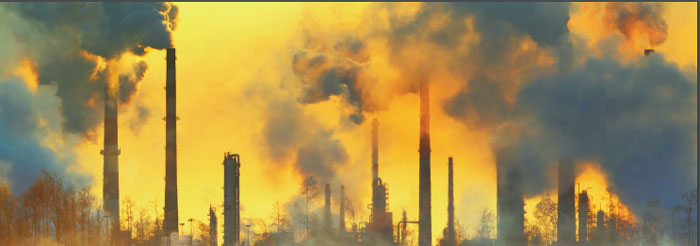
Background
Rapid population growth, urbanization and industrialization in recent decades has made the air pollution globally recognized as a serious problem with its short and long term impacts on environment and human health. The rate at which urban air pollution has grown across the developing countries especially Asian and African countries is alarming. A vast majority of cities are caught in the toxic web as air quality fails to meet the standards. The cities are reeling under severe particulate pollution while newer pollutants like oxides of nitrogen and air toxics have begun to add to the public health challenge.
The major factors contributing to the air pollution includes vehicular exhaust, construction work, waste burning and industrial activities. Industrial sector is one of the most dynamic sectors and plays an essential role in economic development. However, with its development, it is also a crucial and prominent contributor to the overall air pollution of the area. Therefore, conducting source apportionment study focusing on different sources of pollution and preparing separate mitigation plans for each source has become the need of the hour. This practice will prove beneficial in reducing the overall air pollution load significantly.
Keeping this in view, CSE which is known for its path breaking research and advocacy and well recognized for its leading edge in capacitating public institutions and regulatory agencies is rolling out a new training programme in its series of its capacity building programmes. The programme is a two-week online course on “How to develop an air quality management plan for Industrial areas” focusing majorly on industrial pollution and strategies to mitigate the air pollution through effective management plans.
Purpose
To capacitate the regulators and relevant stakeholders and strengthen the policy implementation on the ground
Programme Design
An effective approach for air quality management in polluted areas involves (i) identification of emission sources; (ii) assessment of extent of contribution of these sources on ambient environment; (iii) prioritizing the sources that need to be tackled; (iv) evaluate various options for controlling the sources with regard to feasibility and economic viability; and (v) formulation and implementation of appropriate action plans. In order to achieve these steps, a preliminary knowledge and understanding of the air pollution and air quality management is a necessity.
With this aim, the programme has been designed in two levels: Level I (online) and Level II (off-site at CSE’s training centre). Level I intend to provide an overall understanding of the topic and set up the platform for the level II programme.
Learning from the programme
- Need for air quality management
- Current global scenarios
- Basics of air quality monitoring
- Parameters for air quality management
- Principles of Air Pollution Control Devices (APCD)
- Policy adaption in different countries